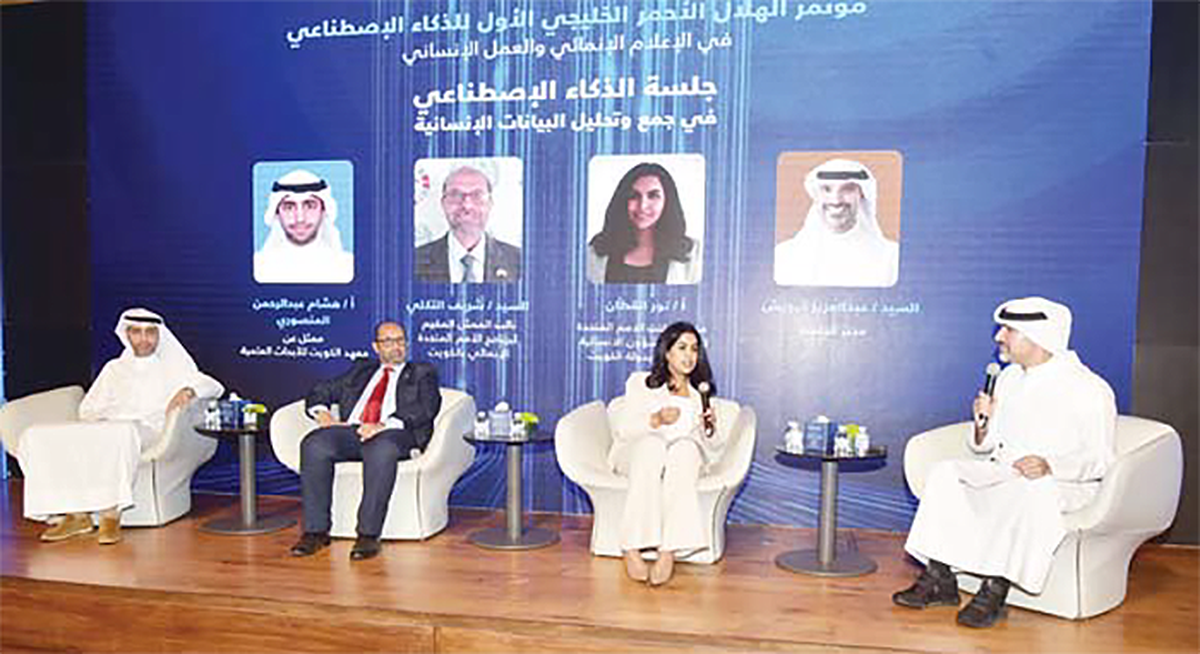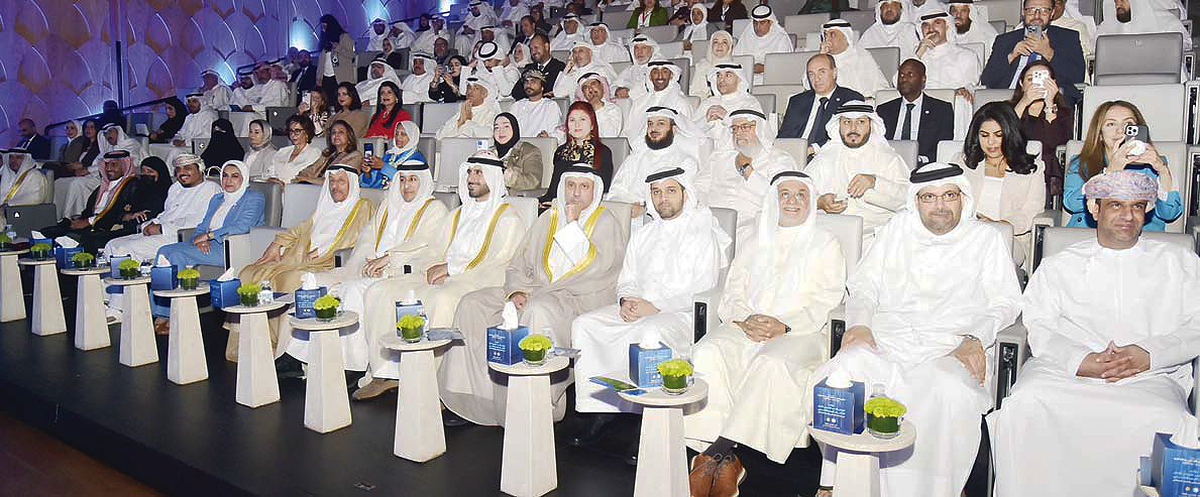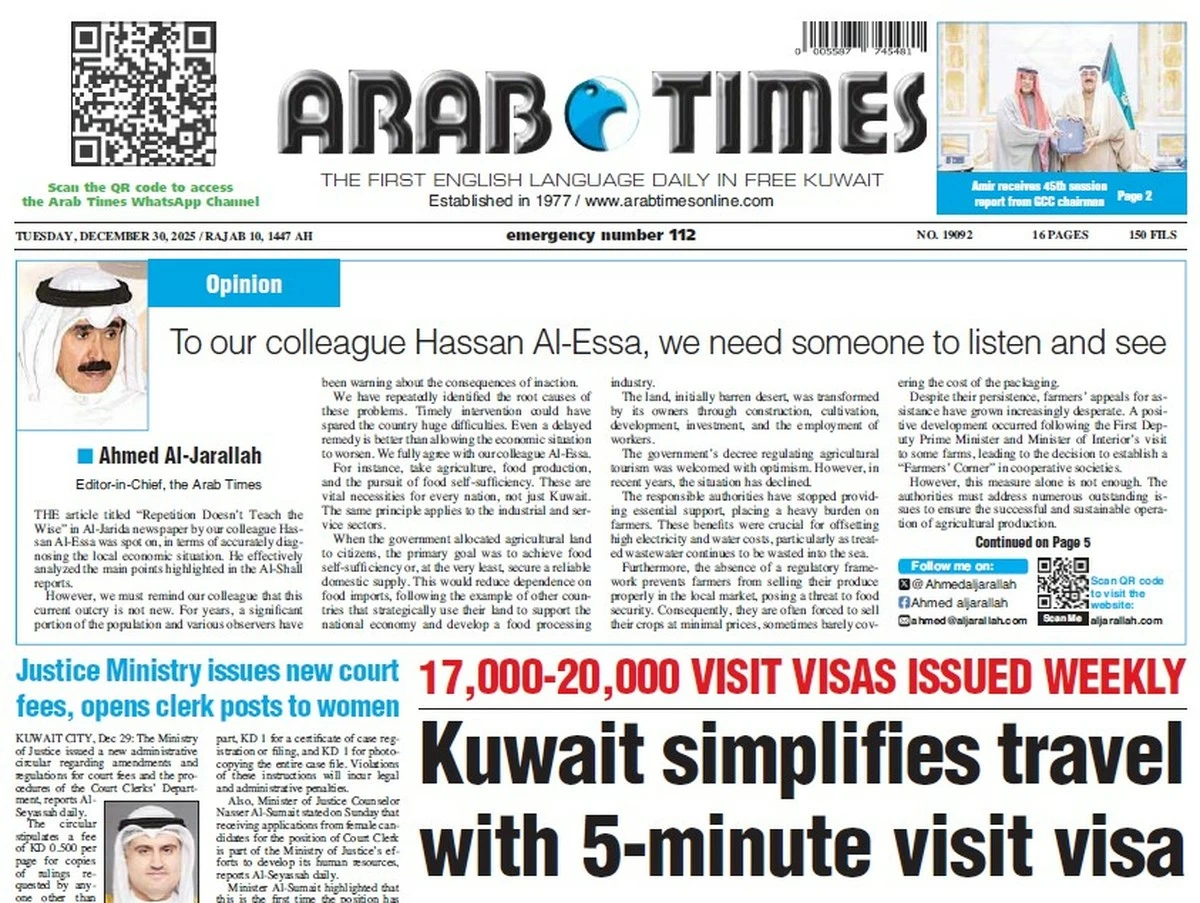22/10/2025
22/10/2025


He expressed his gratitude and appreciation to the Kuwait Red Crescent Society (KRCS) for its pioneering and ongoing efforts in promoting humanitarian values and launching this conference, and to all participating representatives, organizations and experts. He wished for the success of the conferences, which will contribute to strengthening humanitarian cooperation and raising the level of humanitarian and media performance in the Gulf and the region. In addition, Chairman of the Board of Directors of KRCS Khaled Al-Mughamis stated that artificial intelligence can make a difference in humanitarian work by predicting disasters, analyzing data to direct aid, and facilitating the restoration of family ties between refugees and migrants. He disclosed that KRCS took practical steps to integrate modern technologies, primarily artificial intelligence, into its programs to develop humanitarian work and enhance its efficiency, whether in monitoring needs, managing data or improving response speed. He stated that humanitarian work is one of the pillars of the policy of Kuwait and its civilizational mission, extending his thanks to His Highness the Amir Sheikh Meshal Al-Ahmad Al-Jaber Al-Sabah for his full support for humanitarian work and his keenness to enhance the humanitarian role of the Kuwait regionally and globally.
He added that this generous support motivates KRCS to continue fulfilling its humanitarian mission with full commitment and responsibility, emphasizing that it will continue its journey under the slogan, “Dedication and Giving,” which reflects the essence of its mission. He said “Our investment in these smart tools will not be a substitute for the humanitarian values in which we believe, but rather a means to enhance them, expand their impact, and reach people everywhere in the shortest possible time and with the highest possible quality.” He stressed that artificial intelligence will not replace field workers, as it will help them and accelerate the delivery of aid to those in need. He also acknowledged the challenges of data protection and the need to ensure that justice and humanity remain at the core of every innovation. He called for strengthening partnerships between humanitarian organizations and the technology sector and building an ethical framework to govern such cooperation. He praised the efforts of KRCS volunteers and their tireless work, which is the cornerstone of the success of its missions and relief campaigns in and outside Kuwait.
He thanked the Minister of Foreign Affairs for sponsoring the conference, Minister of Social, Family and Childhood Affairs for her continuous support and follow-up of the achievements of KRCS, the media, international and national organizations, and Red Crescent societies and associations in the Gulf Cooperation Council countries for their ongoing cooperation and coordination. Head of the International Committee of the Red Cross’ regional delegation for the GCC Mamadou Sow highlighted the great promise of artificial intelligence for humanitarian action through early warning systems for disasters, monitoring needs and reconnecting families. He also commended the GCC’s investments in artificial intelligence and innovation.
Representative of the GCC Secretariat General Abrar Al-Saleem called on specialists to enhance cooperation to discuss artificial intelligence applications in the humanitarian field and build an integrated Jamal Al-Nouri, Chairman of the Board of Directors of the Abdullah Al- Nouri Charitable Association, asserted that digitization and artificial intelligence have become essential as tools to increase efficiency, transparency, and ease access to beneficiaries in charitable work, indicating that digitization enhances donor confidence and expands the beneficiary base, while artificial intelligence opens horizons for predicting needs.


